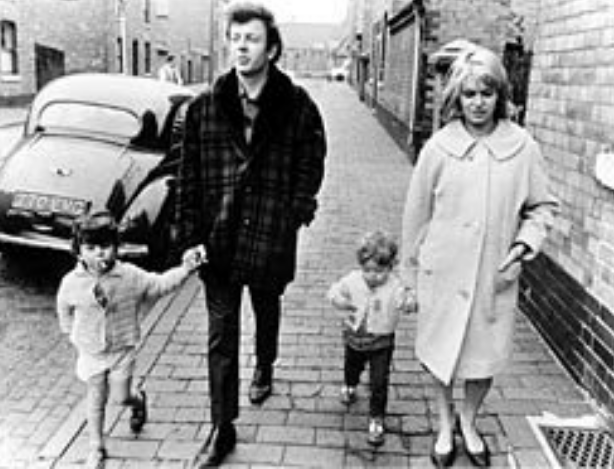Cathy Come Home – a ground-breaking TV drama that shook a nation
I delved into the broadcasting archives last week to watch Cathy Come Home, which tackles the devastating realities of homelessness, poverty, and social injustice. First aired on BBC1 in 1966, the drama is still hailed for its realism, emotional storytelling, and its role in changing public perception and policy on homelessness.
Directed by Ken Loach and written by Jeremy Sandford, Cathy Come Home tells the story of Cathy and Reg, a young couple whose lives fall into a seemingly terminal downward spiral after a series of unfortunate events. Initially brimming with optimism and opportunity, the couple marry and start a family. However, Reg loses his job following an accident, and the family is gradually pushed into homelessness, through no fault of their own. They are then forced to navigate a cold, indifferent bureaucratic system that ultimately tears them apart.
Shot on location with handheld cameras in a docudrama fly-on-the-wall style, Cathy Come Home blurs the lines between fact and fiction. At times, it feels more like a documentary than a scripted piece of TV drama, heightening its emotional impact and credibility.
A landmark in British social realism
Loach uses Cathy Come Home to highlight the failures of the British welfare system. The drama doesn’t just entertain - it confronts audiences with the stark truth about homelessness, particularly how it affects women and children. Cathy’s story is not unique; it represented the experiences of thousands of families in 1960s Britain.
An estimated 12 million people watched the original broadcast - roughly a quarter of the UK population at the time. It was raised in Parliament and sparked national outrage prompting widespread debate about housing policy, welfare, and the treatment of vulnerable families. It also played a significant role in the founding and rise of the housing charity Crisis, as well as boosting public support for Shelter.
Cathy Come Home received critical acclaim for both its storytelling and social relevance. In 1998, it was voted the best single television drama by industry professionals in a British Film Institute poll. It has also been ranked among the greatest British TV programmes of all time, and is often cited as a key example of television’s potential to influence real-world change.
Why Cathy Come Home still matters
In today's climate of rising homelessness and housing insecurity, Cathy Come Home remains alarmingly relevant. The issues it explored in 1966 continue to resonate in the 21st century, almost 60 years later. It serves as a reminder of the importance of compassionate policy-making, adequate social housing, and the human cost of systemic failure.
Cathy Come Home doesn’t leave a dry eye in the house and it really is a “must view”, as painful as it may be for you watching it. It is available for £3.49 – money well spent in my opinion - on Amazon Prime: https://www.amazon.co.uk/Cathy-Come-Home/dp/B01F0XF236

